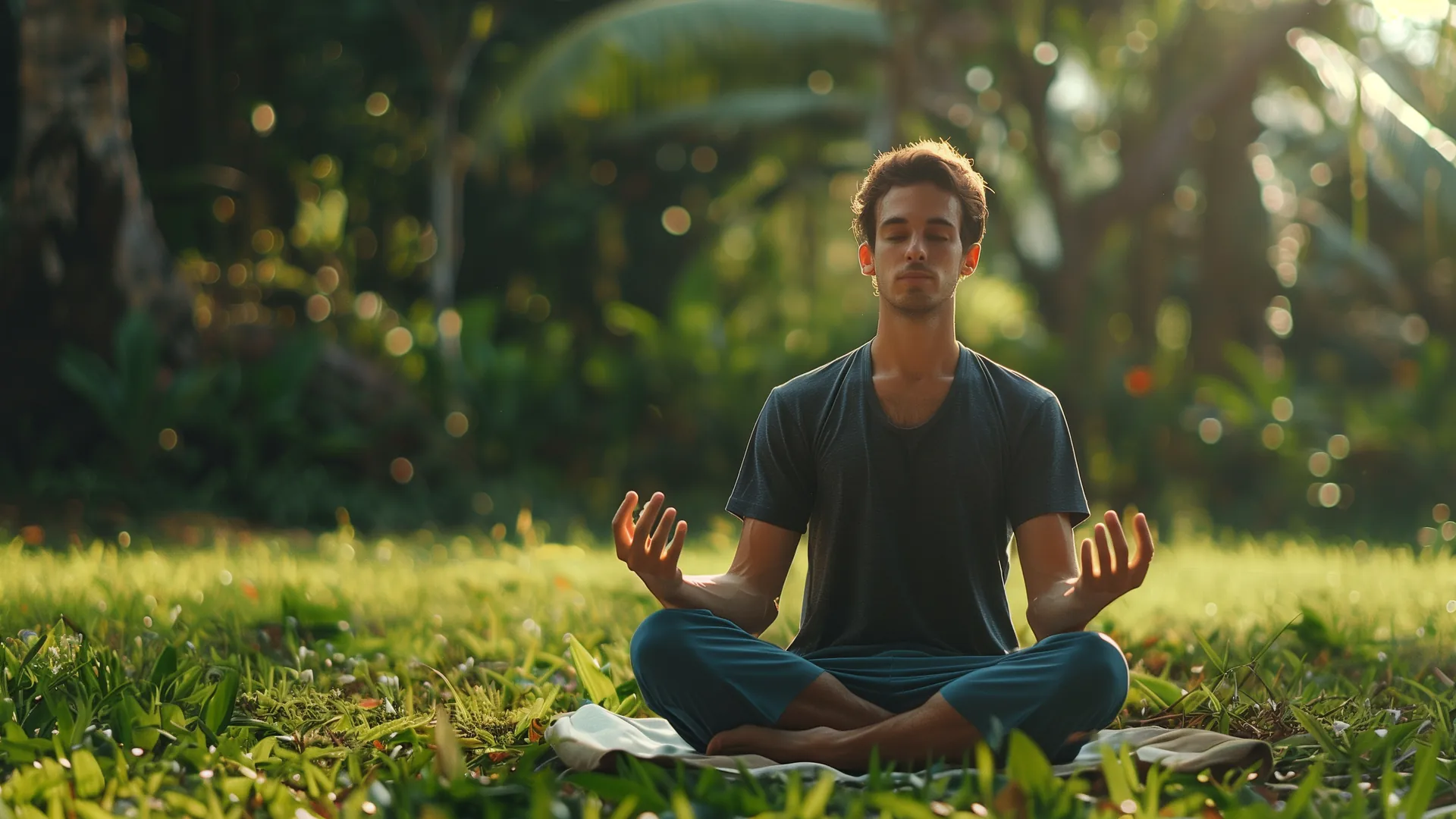Mindfulness, often referred to as mindful awareness, is recognized as a highly effective method for alleviating stress and anxiety in our fast-paced modern environment. This practice, which finds its roots in ancient Eastern meditation techniques, has become widely embraced in the Western world for its ease of use and demonstrated success. This article will delve into how mindfulness contributes to daily stress and anxiety management and discuss various meditation techniques that can be utilized to achieve emotional peace and improve overall quality of life.
Understanding Mindfulness

Mindfulness is a technique that promotes remaining present in the moment, fully conscious of each thought, emotion, or sensation without passing judgment. It capitalizes on ancient Eastern traditions yet has been seamlessly integrated into Western psychotherapy and psychological practices over recent decades, becoming popular for its effectiveness in enhancing life quality and reducing stress.
Key Principles of Mindfulness
- Acceptance: Mindfulness requires the unconditional acceptance of current experiences. It does not entail passivity or abandoning ambitions but rather involves acknowledging and embracing one's thoughts and emotions without critique.
- Non-judgment: A fundamental aspect of mindfulness is refraining from categorizing thoughts as "good" or "bad." Instead, they are to be observed neutrally, akin to watching clouds drift across the sky.
- Patience: Mindfulness demands both time and consistent practice as the mind is naturally inclined to wander. Cultivating patience with oneself during the learning process is essential for success.
- Openness: Embracing new ideas, sensations, and experiences, even those that may initially seem strange or uncomfortable, is encouraged in mindfulness practice.
- Trust: Developing a strong sense of trust in oneself and one’s feelings is crucial, as is trusting in life’s process and one's intuition.
Benefits of Practicing Mindfulness
- Mental Health Improvements: Mindfulness significantly lowers stress, anxiety, and depression levels.
- Boosted Attention and Concentration: Engaging regularly in meditation and mindfulness practices enhances the ability to concentrate and stay focused on tasks.
- Enhanced Emotional Regulation: Mindfulness fosters an understanding and acceptance of one’s emotions, helping to prevent them from overtaking one’s behavior.
- Strengthened Interpersonal Relationships: Practicing mindfulness can lead to deeper, more meaningful connections with others.
Mindfulness in Reducing Stress and Anxiety

Mindfulness has gained popularity as an effective strategy for fighting stress and anxiety. This approach of psychological self-regulation relies on maintaining complete awareness of the present moment without forming judgments. We will explore how mindfulness serves to diminish stress and anxiety levels and its effectiveness in enhancing life quality.
Fundamental Mechanisms of Mindfulness
- Living in the Now: Mindfulness centers one's attention on the present moment, which naturally dispels concerns about the future and regrets over the past, leading to reduced stress levels. Many stress-inducing thoughts stem from fears of forthcoming negative events or past errors.
- Acceptance of the Present: Mindfulness involves embracing the present state without attempting to alter it. This acceptance can ease the strain and discomfort that come from trying to control what is beyond one’s control.
- Control of Attention: Through mindfulness, one learns to regulate focus and avoid lingering on anxious thoughts, thus enabling more effective management of intrusive thoughts and emotions.
By engaging in mindfulness practices, individuals can better navigate the complexities of everyday life, leading to reduced stress and improved emotional and psychological well-being.
Meditation Techniques to Enhance Mindfulness

Meditation stands out as a highly effective strategy for fostering mindfulness. It assists in attaining tranquility, sharpening focus, and lowering stress. In this discussion, we explore a variety of meditation practices that can help cultivate mindfulness and elevate general wellness.
- Breathing Meditation: An easy-to-learn and universally accessible form of meditation, this technique is perfect for both novices and seasoned meditators. It centers on mindful breathing. Practitioners should pay close attention to each breath in and out, experiencing the air as it enters through the nose, fills the lungs, and exits the body. If you find your focus drifting, calmly and without judgment, redirect it back to the rhythm of your breath.
- Presence Meditation: This technique demands complete engagement with the present moment. It involves being conscious of all sensory inputs—what you hear, smell, and the thoughts that drift across your mind. The key is to observe these sensations without making judgments, simply letting them pass through your awareness like a breeze.
- Thought Observation Meditation: This method entails monitoring the flow of thoughts without trying to influence or assess them. The goal is to comprehend the workings of your mind and to train yourself to respond to thoughts reflexively.
- Mindful Walking Meditation: An excellent method for practicing mindfulness while moving. Focus should be maintained on the physical sensations of walking—each step, the contact of your feet with the ground, and the rhythm of your movements, noticing how your body interacts with its surroundings.
Conclusion

Mindfulness is an invaluable asset in the struggle against stress and anxiety. Regular practice of mindfulness techniques can profoundly develop one's ability to stay anchored in the present, acknowledging and accepting thoughts and emotions without judgment. This contributes to reduced stress levels, an improved emotional state, and deeper inner peace. Given these benefits, it is clear that mindfulness is instrumental in enhancing the quality of life, better managing daily stressors, and appreciating the beauty of simple moments.










